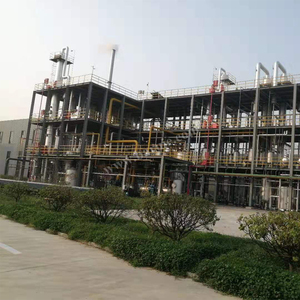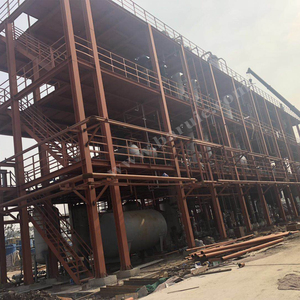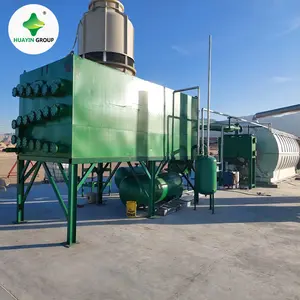Popular in your industry









































































Related Searches:
















































































































































Top categories
About bio oil pyrolysis
Bio Oil Pyrolysis: An Overview
Bio oil pyrolysis represents a transformative approach to managing organic waste, converting biomass into a versatile and potentially renewable energy source. This process involves the thermal decomposition of organic material at elevated temperatures in the absence of oxygen, a method that is gaining traction within the energy sector. As a category, bio oil pyrolysis encompasses various technologies and applications, each tailored to harness the potential of biomass as a sustainable energy carrier.
Types and Applications of Bio Oil Pyrolysis
The diversity of bio oil pyrolysis technologies is evident in the range of products they yield, including biomass pyrolysis oil, fast pyrolysis bio oil, and wood pyrolysis oil. These products find applications across numerous sectors, from serving as a feedstock for chemical production to being a potential substitute for fossil fuels in energy generation. The adaptability of bio oil from biomass pyrolysis is one of its most compelling attributes, allowing for its use in both industrial and domestic settings.
Features and Materials in Bio Oil Pyrolysis Systems
Systems designed for bio oil pyrolysis are engineered to handle a variety of biomass inputs, including agricultural residues and wood biomass. The efficiency of these systems is a testament to the advancements in biomass to bio oil conversion technologies. Features such as precise temperature control and rapid cooling mechanisms are integral to producing high-quality fast pyrolysis oil. The construction materials of these systems are chosen for durability and resistance to the corrosive nature of bio oils, ensuring longevity and consistent performance.
Advantages of Bio Oil Pyrolysis
The process of converting biomass to bio oil through pyrolysis offers several environmental and economic advantages. It provides a method to reduce waste and promote the use of renewable resources. The bio oils produced, such as shell pyrolysis oil, can be a more carbon-neutral alternative to traditional fossil fuels, contributing to the reduction of greenhouse gas emissions. Additionally, the scalability of pyrolysis technology means it can be adapted for both small-scale and large-scale production, making it a versatile option for energy generation.
Understanding the Pyrolysis Process: A Critical Review
The scientific community continues to explore the intricacies of bio oil production through pyrolysis. Publications like "pyrolysis of wood biomass for bio oil: a critical review" delve into the chemical reactions and process optimizations that can enhance oil yield and quality. Such research is crucial for the ongoing development of pyrolysis technologies and for maximizing the potential of bio oils in various applications.
Utilization of Bio Oil in Various Industries
The uses of bio oil from pyrolysis are extensive and growing. Industries ranging from transportation to manufacturing are exploring ways to incorporate bio oils into their operations. The versatility of bio oils allows them to be used directly for heat and power or processed further into fuels and chemicals, showcasing the potential of bio pyrolysis as a cornerstone for sustainable industrial practices.








































